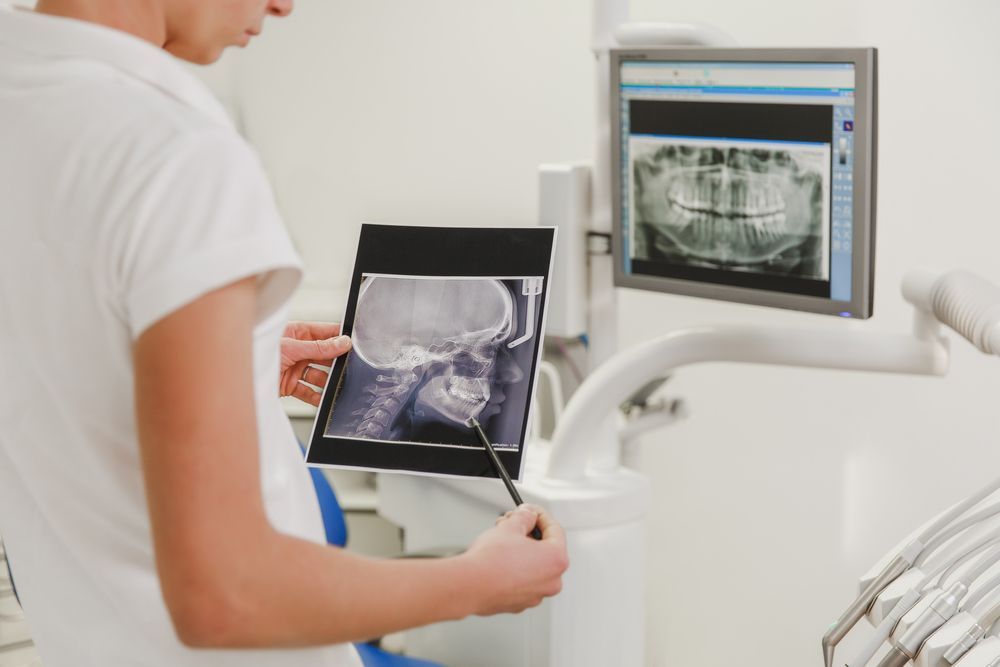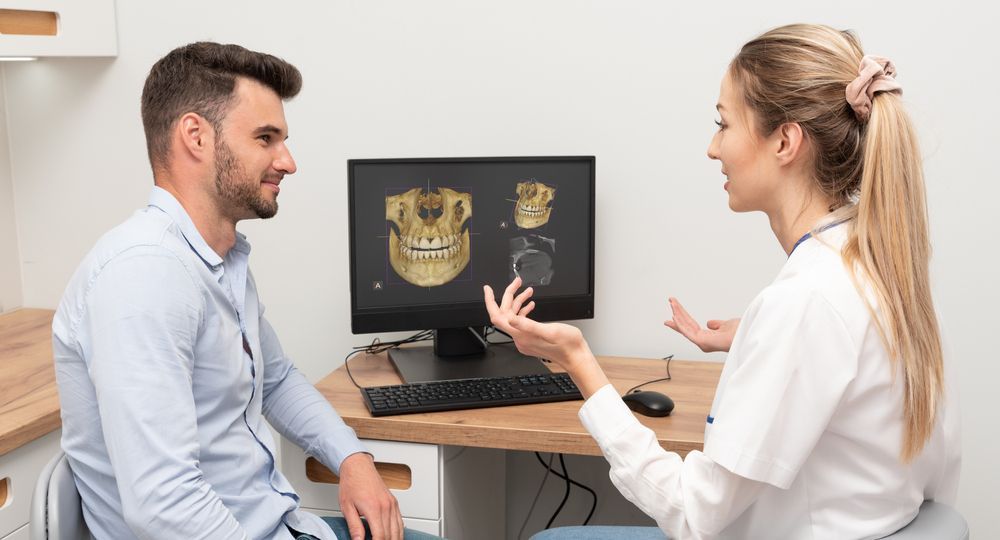Save Your Knocked Out Tooth!
Save Your Knocked Out Tooth!
Top Rated Endodontist in La Jolla
Katherine Thomson DDS
La Jolla Micro Endodontics Specialize in Root Canals,
Retreatments, Apicoectomy, and Cracked Teeth.
Call: (858) 452-2800
First Aid Treatment for Knocked-out Adult Teeth:
If an adult or (permanent) tooth is knocked out: Work Fast to Replant the tooth.
- Handle the tooth by the crown (smooth white part), not the root (yellowish pointy part).
- If the tooth is dirty, gently rinse it in milk or saline for a few seconds. Do not rinse the tooth with water.
- Holding the clean tooth by the crown, gently put it back into the hole in the gum (socket). Make sure the pointy yellowish root(s) is the part that goes into the socket. Only do this if the person is conscious. It helps to place your other hand on the person's head to stabilize it while putting the tooth back in the socket.
- Replanting the tooth within 5 minutes ensures the ability to regenerate periodontal ligament cells — the living cells on the root surfaces that connect them to the bone of the tooth socket.
- Have the person hold the tooth in place by gently biting on something soft, like a wet tissue, or cloth.
- Assist the person to see an oral health professional immediately.
If you can’t replace the tooth yourself:
⇨
Try not to let the tooth dry out - place it in milk or ask the person to spit into a clean container and place the tooth in their saliva. You could also seal the tooth in plastic wrap.
⇨
Do not use water to rinse or store the knocked-out tooth. Keep the tooth moist at all times. The tooth must stay moist at all times, either in your mouth or, if it can’t be replaced in the socket, put it in milk, or in your mouth next to your cheek, or in an emergency tooth preservation kit (such as Save-a-Tooth®). Don’t use regular tap water; root surface cells can’t tolerate that for extended periods of time.
⇨
Seek immediate advice from an oral health professional.
⇨ Act quickly, within 30 minutes, and visit the nearest dentist or endodontist.
⇨ Bring the tooth with you to your emergency appointment. It's best to see the doctor within 30 minutes; however, it is possible to save a tooth even if it has been outside the mouth for an hour or more.
⇨
Endodontists are specialists in saving teeth. Learn more about why you should see an endodontist
Primary Teeth Are Not Replanted. Do Not Attempt to Replant a Baby Tooth
The major reasons for not replanting a primary tooth include:
- The baby tooth could fuse to the bone, causing problems when it’s time for it to fall out naturally, and might affect the growth of the adult tooth, bone and gums, causing concerns for the health and normal eruption of the underlying permanent tooth.
- trauma could damage the developing permanent tooth and there is a risk for nerve damage or an injury to the jaw.
- Replanting primary teeth may cause infection to spread to the developing permanent tooth
- or interfere with the normal time sequence of the permanent tooth erupting into the mouth.
The more important consideration is to retain space occupied by the lost primary molars, which act as guides for erupting permanent teeth. Therefore, more important than replantation, is to see Katherine Thomson DDS to determine how to maintain the space the primary tooth occupied. This may prevent the need for orthodontic treatment to correct the situation later.
What an Endodontist Specialist Does for Patients.
Seeing a specialist is best when there is a major dental problem. Dealing with a knocked-out tooth is a huge concern. Endodontists are the specialists best suited to focus on treating oral pain and trauma. These dentists have additional training beyond dental school to perform root canals, save damaged or avulsed teeth and recommend treatment.
Dental Problems Associated with the Traumatic Loss of a Permanent tooth
Patients frequently ask their Katherine Thomson DDS what will happen in the case of a knocked-out tooth. Beyond the cosmetic effects, is there a reason to replace it? The reality is, losing a tooth is a serious concern. As for permanent teeth, when one falls out, it can cause the other teeth to drift and become loose. This puts them at risk of falling out too.
When a tooth is knocked out, there is also potential for bone loss. This event can change the shape of the mouth, causing the face to sag. A person’s speech can change as a result. It is also possible for a lost tooth to contribute to TMJ disorder, which causes significant jaw pain.
Best Treatment Options for a Knocked-Out Permanent Tooth
If a patient loses a permanent tooth, it is important to try to find the tooth and preserve it. Katherine Thomson DDS will reimplant it in the socket.
Katherine Thompson DDS will examine the tooth and make sure it did not suffer damage when knocked out. After placing it in the socket, Katherine Thomson DDS will splint it to the adjacent teeth, and determine whether the tooth will require further treatment such as a root canal.
If reimplantation of the tooth is not possible, Katherine Thomson DDS will recommend a suitable tooth replacement such as a bridge, implant, or partial dentures.
The consequences of losing a primary tooth
Children celebrate the loss of baby teeth. However, if one is knocked out rather than naturally falling out, there can be negative effects. If the baby tooth is knocked out well before the permanent tooth is ready to take its place, the child could have a gap in the mouth for an extended period that may require monitoring or treatment.
Katherine Thomson DDS at La Jolla Micro Endodontics - is ready to address your tooth-loss needs.
The thought of having a tooth knocked out is concerning. First there is the trauma that caused the tooth loss, then there is worry about the long term impact on the oral condition. Even losing a baby tooth in this manner can be serious. But take comfort knowing that an endodontist has the training to assess your needs and provide effective care.
There is a solid body of research evidence that identifies immediate (within 5 minutes) tooth replacement by replantation, as the most important factor for long-term survival of knocked out (avulsed) teeth.
Two other factors are also of importance:
- The removal of the dental pulp (the tissues in the central “root canal”) by a dentist within a few days, — this tissue once separated from the body, will die and cause infection, unless it is removed and the root canal disinfected and filled.
- The person's age at the time of injury — the teeth, roots and jawbones are at different stages of formation and maturity at different ages, both of which may affect treatment decisions.
When a tooth is completely knocked out or avulsed, the timing of its replantation plays a crucial role in determining its long-term survival. Replantation beyond 12 hours can still lead to the survival of the tooth, but this depends on various factors such as;
- the age of the person,
- timely removal of the pulp within two weeks,
- and completion of root canal treatment.
Ankylosis and/or resorption of the tooth are inevitable over time.
Replantation decisions and injury treatments must be based on these factors. Avulsed permanent teeth present a unique challenge because immediate management affects long-term outcomes.
Unfortunately, lack of knowledge and training has led to many individuals being hesitant to replant an avulsed tooth. Immediate replantation can have a positive lifelong impact for tooth survival.
In summary, any permanent tooth that has been completely knocked out should be replanted as soon as possible. Timely action can significantly increase the chances of long-term tooth survival. Factors such as the impact of the person's growth process and enhanced cellular activity must be considered when deciding to replant or remove a recently replanted tooth. It is crucial to seek immediate professional dental help in case of dental trauma or tooth avulsion.
Call
(858) 452-2800 La Jolla Micro Endodontics office, Katherine Thomson DDS is prepared for emergency care and the long term solutions that are best for missing teeth.
Related Posts




